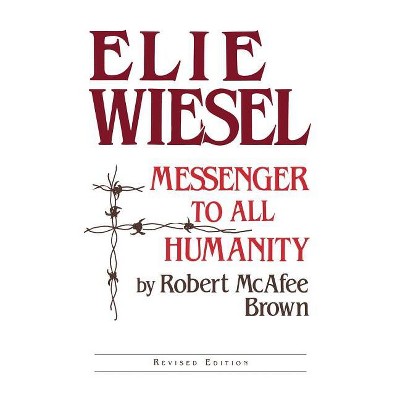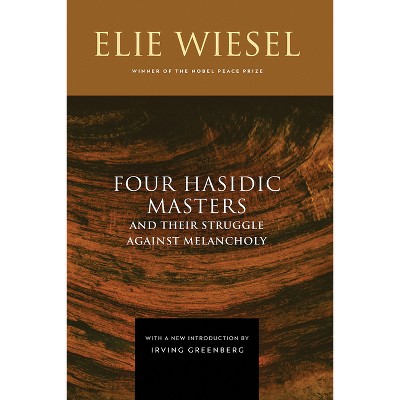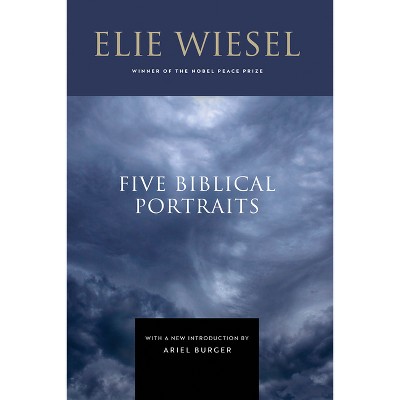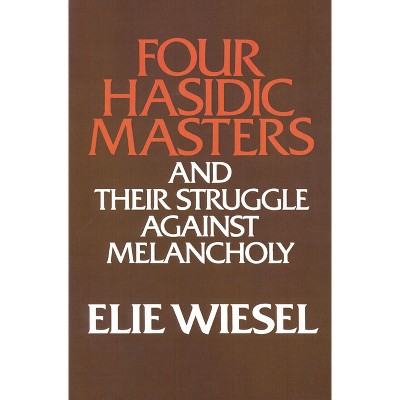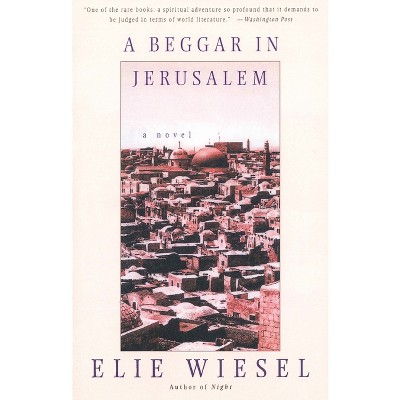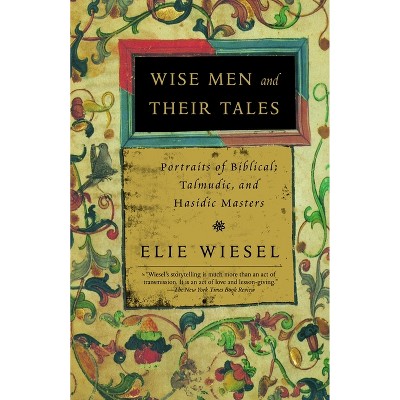Sponsored

Elie Wiesel - by Robert McAfee Brown (Hardcover)
In Stock
Sponsored
About this item
Highlights
- Elie Wiesel: Messenger to All Humanity is a call to both Christians and Jews to face the tragedy of the Holocaust and begin again.Robert McAfee Brown was a friend of Wiesel and wrote Elie Wiesel: Messenger to All Humanity to process his own thoughts, engage with Wiesel's thinking, and inspire others to read and engage with Wiesel's own works.
- About the Author: Robert McAfee Brown (1920--2001) was professor of religious studies at Stanford University and a Protestant member of the U.S. Holocaust Memorial Council.
- 280 Pages
- Literary Criticism, General
Description
About the Book
Upon presenting the 1986 Nobel Prize for Peace to Elie Wiesel, Egil Aarvick, chairman of the Norwegian Nobel Prize Committee, hailed him as "a messenger to mankind--not with a message of hate and revenge but with one of brotherhood and atonement." Elie Wiesel: Messenger to All Humanity, first published in 1983, echoes this theme and still affirms that message, a call to both Christians and Jews to face the tragedy of the Holocaust and begin again.Book Synopsis
Elie Wiesel: Messenger to All Humanity is a call to both Christians and Jews to face the tragedy of the Holocaust and begin again.
Robert McAfee Brown was a friend of Wiesel and wrote Elie Wiesel: Messenger to All Humanity to process his own thoughts, engage with Wiesel's thinking, and inspire others to read and engage with Wiesel's own works. First published in 1983, this book grapples with the horrors of the Holocaust without overshadowing or speaking over Jewish survivors. Brown writes with care and sensitivity and does not shy away from the true magnitude of the tragedy and suffering. As he says in the introduction, "Although we cannot enter Elie Wiesel's world, we can let him enter ours." This text lets Wiesel enter our world and allows us to learn from him through the eyes, ears, and heart of a friend.
Review Quotes
"...Brown asserts the centrality of the Holocaust to any modern theology. No theology that ignores Auschwitz is relevant. What kind of God is it Who could allow such events to occur? How can we conceive of a God Who permits the burning of children? Especially in the second half of his book, we see that Brown and Wiesel are engaged in a similar struggle, to maintain belief while eschewing comfortable pieties and confronting the worst horrors of our time." --American Jewish History
"Brown's excellent concept of story... adds to his analytical understanding of what Wiesel means. His new book about Wiesel is a treasure." --National Catholic Reporter
"Professor of Theoloy and Ethics at the Pacific School of Religion and Protestant member of the U.S. Holocaust Memorial Council, Robert McAfee Brown uses his excellent literary and theological skills to lead the reader on a series of challenging journeys through and beyond the complex world of Wiesel." --Theology Today
"[A]n insightful and often impassioned account of Elie Wiesel's themes, preoccupations and development. . . .Traces his moral and spiritual journey as it is reflected through his work and his biography." --The New York Times
"Brown, a Protestant theologian, ecumenical, versatile, and sympathetic, approaches his subject well aware of the paradoxes and impossibilities involved: the inadequacy of language to convey the experience and the impossibility of remaining silent about it; the persistence of hope and faith in defiance of reason and experience; the meaning of madness and laughter." --Choice
About the Author
Robert McAfee Brown (1920--2001) was professor of religious studies at Stanford University and a Protestant member of the U.S. Holocaust Memorial Council.
